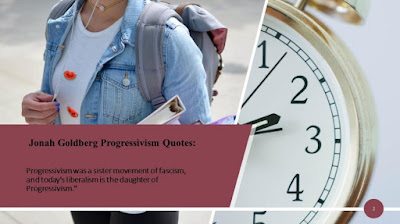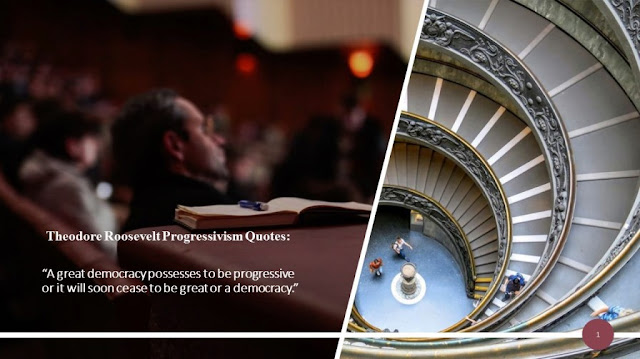,
Progressivism:
Progressivism Definition:
Progressivism is an academic movement started by American philosopher John Dewey that describes that students learn through their own experiences. It revolves round the students' needs, including teaching students to be good citizens also as well as good learners, an idea referred to as focusing on the entire child.
Progressivism Era:
The Progressivism Era was a period of widespread social activism and political reform across the America that spanned the 1890s to the 1920s. The basic objectives of the Progressive movement were addressing problems caused by Industrialization, Urbanization, Immigration, and Political Corruption. The movement basically influenced political leaders. By taking down these corrupt representatives in office, an extra means of direct democracy can be established.They also advocated for brand new government roles and regulations, and new agencies to hold out those roles like the FDA.
Many Progressivism activists favoured restriction of alcoholic beverages, ostensibly to destroy the political power of local bosses based in saloons, but others supported religious affairs.
Progressivism Quotes:
Progressivism:
Progressivism Definition:
Progressivism is an academic movement started by American philosopher John Dewey that describes that students learn through their own experiences. It revolves round the students' needs, including teaching students to be good citizens also as well as good learners, an idea referred to as focusing on the entire child.
Progressivism Era:
The Progressivism Era was a period of widespread social activism and political reform across the America that spanned the 1890s to the 1920s. The basic objectives of the Progressive movement were addressing problems caused by Industrialization, Urbanization, Immigration, and Political Corruption. The movement basically influenced political leaders. By taking down these corrupt representatives in office, an extra means of direct democracy can be established.They also advocated for brand new government roles and regulations, and new agencies to hold out those roles like the FDA.
Many Progressivism activists favoured restriction of alcoholic beverages, ostensibly to destroy the political power of local bosses based in saloons, but others supported religious affairs.
Progressivism Quotes:
Jonah Goldberg Progressivism Quotes:
Theodore Roosevelt Progressivism Quotes:
Progressivism Overview:
Curriculum of Progressivism is focused on thematic units. Group work is encouraged in it. Students should test ideas by active experimentation. Assessment is done by evaluation of child’s projects and productions. In Progressivism, learning is directly related to the interests of the child not the teacher.
Teacher role in Progressivism:
Teachers facilitate and encourage students to use a wide variety of activities to learn. Progressive teachers suggest students to learn by discovery.
Student Role in Progressivism:
Student is an active participant in their learning. Students should have active engagement and thinking for themselves.
Progressivism Curriculum:
Curriculum is focused on:
A series of things that children and youth must do and experience. Children have all experiences under the guidance of teachers. The total experiences with which the school deals in educating young people. A set of values that is activated through a development process and conclude in classroom experiences for students.







